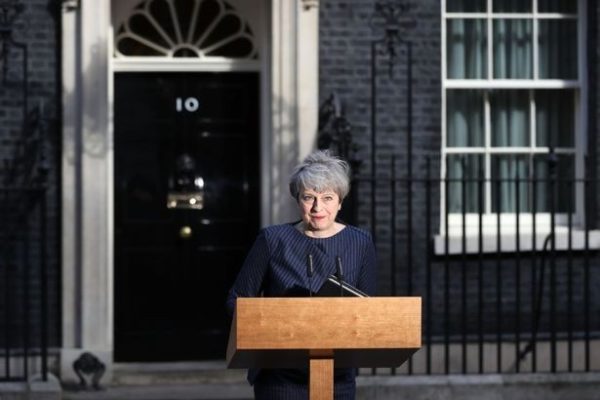UK Election Reveals That Future Of Politics Is Polarization, Not Compromise
Like many women in power, Theresa May specializes in canny negotiation that involves compromise whereby each party gives something up and no one gets what they want, even if they could have had it by holding out and being less “reasonable” and more focused on a goal.
Now that the results are in, it is clear that May failed to win a majority, but has forged a partnership between her Tories and a Christian-oriented party. This may unite different factions as the Left attacks them as a unified group, but could just as possibly lead to internal struggles for direction.
What makes this result amazing is that, had the Tories stayed on message with the idea of breaking away from the EU and limiting or eliminating immigration, the people who voted against them would still have done so, but those who stayed home from lack of inspiration in this election would have come out in force.
By obeying conventional wisdom, which is to try to play nice with everyone in order to keep the peace, May lost ground and has created a divided government.
The worst path for her to take, which May took, was to do little to avert an ongoing disaster. Liberal democracy has spent, regulated and specialized itself into a state where the middle class cannot survive, and not surprising, the young are hardest hit, and, being impressionable, are swaying to Left-radicalism in a forlorn hope.
It was time for her to double down and crusade against the crazy assortment of unions, diversity special interests, government elites, and industry lobbyists who favor the current system. If, like Trump, she had promised tax cuts and a slashing of regulations to put more money into the pockets of people who are desperate, she would have gained support for her ideological agenda.
Instead, mirroring other European mainstream Right failures, May tried to be bipartisan and as a result, inherited blame for the current system. Now is not a time to be a fence-sitter. It is a micro-era in which conservatives win, like Reagan and Trump did, by united social conservatism, anti-Leftist action, and libertarian economics.
The system is crushing its people, as democracy always tends to do. Very few can understand or articulate this. They can understand that the bulky and bloated State is in their way, and that everyone would breathe easier with a heady dose of economic competition and removal of government from every aspect of life. The voters need saving first, and only later to see how conservative values pair with that.
It is not beyond the grasp of the average UK voter to see that immigration drives down wages, EU regulation shatters small businesses, or that the civil rights agenda has crushed job prospects for those not from protected groups. For now, one does not need to get more extreme than that, but those who play like savvy career politicians will find themselves in the middle while voters are heading to the edges.
Maybe there is a metaphor in that. When voters find themselves in the margins, they move toward the edges. The worse off things are, the more people are likely to gamble on a solution as opposed to what May offered, which was the status quo with a few tweaks. People crave radical action because they feel the inertia of the present path dragging them toward an abyss.
May attempted to transition the Brexit effect from a single issue to support for a broad conservative agenda, but her agenda was both not conservative enough and not practical enough. What her textbooks told her to do was wrong in this case.
This result will benefit the Right in the long-term because polarization of the electorate is a good thing. It has become clear that Right and Left cannot co-exist, and therefore, that having the nation divide will be a positive thing in the long term. It will force clear articulations of the issues from parties who have been content to hide in the middle for too long.
Politics is conflict. The tendency of professionals, such as May, is to avoid that conflict in order to create stability for their office. When parties serve ceremonial roles, politicians get to hang out and get paid for doing nothing more than making symbolic changes. Their acts become visual instead of structural alterations to the political landscape, as is needed to achieve what they are elected to do.
In the meantime, the takeaway for future Right-wing leaders as we transition out of democracy is that they should not be afraid to polarize and take a radical stance as long as it also addresses the daily concerns of people, like salaries and cost of living. The first political group to demonstrate a working system will dominate the future, even if in the short term there will be conflict.
Tags: conservatives, theresa may, UK politics










